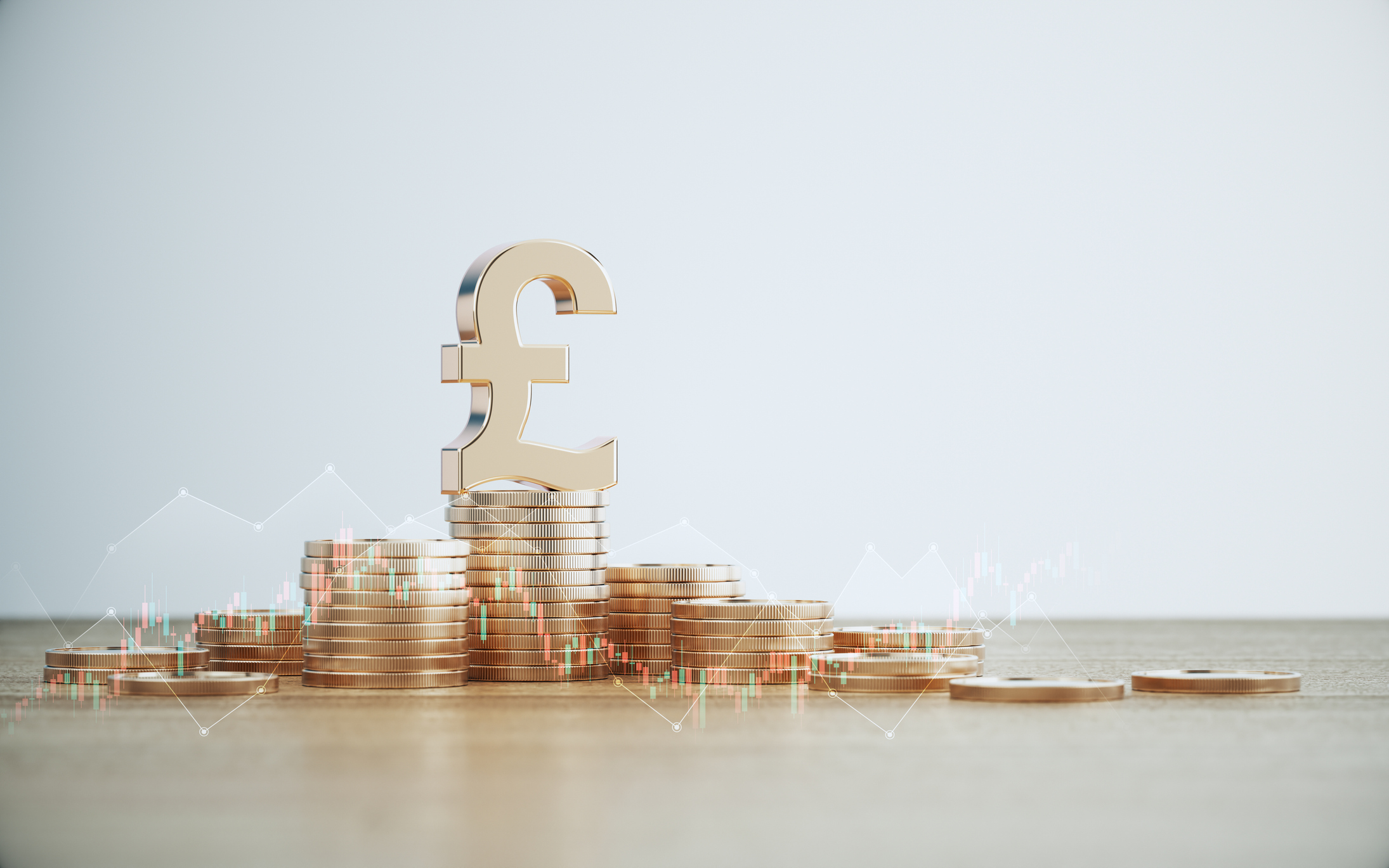Cash ISA vs stocks and shares ISA: which is better for your money?
The debate over low-risk cash ISAs versus higher-returning stocks and shares ISAs overlooks the fact that both have an important role for different goals

Laura Miller

Get the latest financial news, insights and expert analysis from our award-winning MoneyWeek team, to help you understand what really matters when it comes to your finances.
You are now subscribed
Your newsletter sign-up was successful
Want to add more newsletters?

Twice daily
MoneyWeek
Get the latest financial news, insights and expert analysis from our award-winning MoneyWeek team, to help you understand what really matters when it comes to your finances.

Four times a week
Look After My Bills
Sign up to our free money-saving newsletter, filled with the latest news and expert advice to help you find the best tips and deals for managing your bills. Start saving today!
Deciding whether to put your money into a cash ISA or a stocks and shares ISA has always been a head-scratcher.
Following ISA reforms at the 2025 Autumn Budget, the differences between cash and stocks and shares ISAs have been thrust into the spotlight.
Chancellor Rachel Reeves confirmed she would cut the annual cash ISA allowance to £12,000 from April 2027, meaning savers under the age of 65 would need to put £8,000 into stocks and shares in order to maximise their annual £20,000 allowance. Over 65s can continue using the full ISA allowance of £20,000 with cash ISAs, if they wish to.
MoneyWeek
Subscribe to MoneyWeek today and get your first six magazine issues absolutely FREE

Sign up to Money Morning
Don't miss the latest investment and personal finances news, market analysis, plus money-saving tips with our free twice-daily newsletter
Don't miss the latest investment and personal finances news, market analysis, plus money-saving tips with our free twice-daily newsletter
HMRC also confirmed that certain ‘cash-like’ investments, potentially including money market funds, would be excluded from the stocks and shares ISAs allowance to prevent cautious savers circumventing the limit.
The government has been very vocal as well about the desire for more investment in the UK, and by April 2026, the Retail Investment Campaign is expected to be launched. The initiative is intended to raise awareness of the importance of investing for people’s future financial wellbeing and highlight the value of investing to the economy.
Rachel Springall, finance expert at Moneyfacts, said: “Those intrigued to know how well UK fund sectors have fared over the past 12 months may be pleased to see the UK All Companies fund returned 13.72%, slightly higher than a year prior of 13.26%.”
While the changes are intended to encourage more Brits to start investing, and in theory generate greater long-term returns, experts are unconvinced that the changes in their current form are the best approach.
“Those saving up to £20,000 each year into a cash ISA are losing out on the potential to benefit from the greater growth prospects of stocks and shares investments,” said Steven Cameron, pensions director at Aegon. “But rather than the ‘stick’ of a new lower limit, we would have preferred more use of the ‘carrot’ of more guidance on savings versus investments.”
Whether saving or investing is best for your money will depend on your financial circumstances and your goals. For instance, it’s recommended people hold an easy to access emergency savings pot which covers three to six months of essential spending, before considering locking money away, such as in investments.
Why choose between cash ISAs and stocks and shares ISAs?
Putting money into cash ISAs or savings accounts will offer security that your money will grow over time in nominal terms.
But advocates of investing often highlight that in real terms, cash holdings tend to be eroded by inflation over time, despite a recent period when the best cash ISAs typically offered above-inflation rates – around 4.47% as of November 2025, for example.
Analysis from AJ Bell shows that £1,000 deposited into the average cash ISA when ISAs were launched in 1999 would, as of December 2025, be worth £2,079. The same investment into UK stocks via a typical UK All Companies fund would be worth almost twice as much, at £3,787.
“These figures highlight the hidden cost of playing it safe,” said Laura Suter, director of personal finance at AJ Bell. “While keeping money in cash can feel comfortable, over time it’s an almost guaranteed way to lose purchasing power.”
Stocks and shares ISA returns have outpaced cash ISAs over the past 12 months, according to the latest analysis by Moneyfacts.
The average stocks and shares ISA fund experienced a growth of 11.22% over the past 12 months from February 2025 to February 2026. There have now been three consecutive years of positive growth returns for stocks and shares ISAs. In contrast, the Moneyfacts average cash ISA rate returned 3.48% over the same period. Furthermore, the average cash ISA return is down compared to the previous 12 months.
Springall, from Moneyfacts, said: “Stocks and shares ISAs have now outperformed cash ISA returns for a consecutive year. Over the past 12 months alone, investing in stocks and shares has returned three times more to savers than a cash ISA, based on average returns.
“This should be a wake-up call for those who fear investing, as cash returns have diminished. However, it is important to not rely on returns over the shorter-term when making longer-term investment decisions.”
1 February 2025 to 1 February 2026 | % growth |
Average stocks & shares ISA | 11.22% |
Best-performing stocks & shares ISA fund sector | 38.24% (Latin America*) |
Worst-performing stocks & shares ISA fund sector | -4.03% (Healthcare) |
Average cash ISA rate | 3.48% |
1 February 2024 to 1 February 2025 | % growth |
Average stocks & shares ISA | 11.86% |
Best-performing stocks & shares ISA fund sector | 34.74% (Financial & Financial Innovations) |
Worst-performing stocks & shares ISA fund sector | -11.15% (Latin America) |
Average cash ISA rate | 3.80% |
1 February 2023 to 1 February 2024 | % growth |
Average stocks & shares ISA | 2.80% |
Best-performing stocks & shares ISA fund sector | 34.14% (Technology & Telecoms) |
Worst-performing stocks & shares ISA fund sector | -32.46% (China/Greater China) |
Average cash ISA rate | 3.73% |
1 February 2022 to 1 February 2023 | % growth |
Average stocks & shares ISA | -3.27% |
Best-performing stocks & shares ISA fund sector | 24.64% (Commodities and Natural Resources) |
Worst-performing stocks & shares ISA fund sector | -32.81% (UK Index Linked Gilts) |
Average cash ISA rate | 1.71% |
1 February 2021 to 1 February 2022 | % growth |
Average stocks & shares ISA | 6.92% |
Best-performing stocks & shares ISA fund sector | 27.69% (Commodities and Natural Resources) |
Worst-performing stocks & shares ISA fund sector | -21.98% (China/Greater China) |
Average cash ISA rate | 0.51% |
Source: Moneyfacts
“Cash is considered a safe choice, but investing shows the gains that could be made over the longer-term,” said Springall. “Granted, past performance is not guaranteed to be repeated, so short-term gains should not be a decision maker in isolation. The past year alone laid bare the importance of seeking advice before taking the plunge to invest, some sectors boom one year and perform badly the next but can bounce back.”
How do regular investments compare to cash?
If you invested £1,000 into UK stocks every year since 1999, it would have been worth around £67,866 by the end of September 2025, AJ Bell analysis suggests, compared to just £36,290 if the same payments were made into a cash ISA.
The UK’s stock market has underperformed global competitors throughout that time period. £1,000 invested annually into global stocks would, over the same time, be worth £92,000, while putting it into US stocks would have seen the same investment grow to £127,887 – more than three times the size of the cash equivalent.
| Header Cell - Column 0 | £1,000 one-off investment | £1,000 investment every April |
|---|---|---|
Average IA North America sector | £6,285 | £127,887 |
Average IA Global sector | £5,158 | £92,349 |
Average UK All Companies sector | £3,787 | £67,866 |
Average cash ISA return | £2,079 | £36,290 |
Average UK Gilts sector | £1,912 | £33,931 |
Source: AJ Bell/Bank of England/FE. Data from 30 April 1999 to end of September 2025. Investment figures show average performance of sector including fund charges; inflation is based on CPI measure; cash ISA returns based on average interest rate available.
“Regular investing has been particularly powerful – turning steady contributions into six-figure sums thanks to the power of compounding,” said Suter. “Over that 26-year period the investment in the average North America fund would be nearly five times the total contributions.”
Is investing in stocks riskier than cash?
In the short term, stocks are more volatile than cash and, unlike cash holdings, they can potentially lose nominal value; that is the non-inflation-adjusted value of your investments can fall, whereas cash can’t.
“Markets don’t move in a straight line and there will always be periods of volatility,” said Suter. That makes stocks riskier than cash if viewed over a short time period.
But over the long term there is evidence to suggest that stocks are a safer investment in real (inflation-adjusted) terms.
Barclays Research into the real returns on cash, UK equities (stocks) and gilts since 1899 found that the longer you hold any of these assets for, the smaller the variation in your real returns. Over 20+ time periods, the minimum and maximum return on equities was higher than the equivalent for either cash or gilts.
This divergence between how stocks compare to cash over different time periods highlights the need for a balanced approach between the two, rather than either/or.
“When it comes to choosing between a cash ISA and a stocks and shares ISA, the key question is: are you saving for the short term or the long term?” said Suter. “If you’re setting money aside for an emergency fund, typically three to six months’ worth of expenses, then a cash ISA is a solid option.”
This way, any money you need at short notice or in the case of emergency is protected and easily accessible.
But for long term goals such as retirement plans or home improvements, Suter believes a stocks and shares ISA is more effective than a cash ISA.
“Markets tend to rise over time and outperform cash, despite short-term fluctuations,” she said.
Scott Gallacher, director at advice firm Rowley Turton, said: “Clients with a longer time horizon, around five years or more, and a tolerance for investment risk may find investment ISAs more suitable. However, for shorter time frames – less than five years – or for those preferring caution, cash ISAs are often the better option.”
How to choose between a cash ISA and a stocks and shares ISA
The money they hold is protected from tax, and you have the flexibility to transfer from one to another or withdraw your cash at any time.
Currently, that £20,000 allowance can be split between different types of ISAs, however you see fit. For instance, you could put £10,000 into a stocks and shares ISA and £10,000 into a cash ISA, or £20,000 into cash ISAs.
But under the new rules, from April 2027, savers can only put up to £12,000 of the overall allowance in a cash ISA each year. This will only apply to under 65s. Savers would either have to put the remaining £8,000 into a stocks and shares ISA (or other ISAs such as innovative finance or Lifetime ISAs) if they wanted to maximise their annual limit.
There is a further blow to cash savers following the Budget, as a higher rate of income tax on savings interest held outside a tax-efficient wrapper (like an ISA) will also apply from April 2027.
Despite the new cash ISA limit there is no need to “choose” between either a cash ISA or a stocks and shares ISA. The two are not mutually exclusive, and the government is expected to make further changes to help people allocate their excess funds however works best for them.
“From next April a new ‘Targeted Support’ service will be available, which could equip more people to make the right financial decisions for themselves,” said Cameron, from Aegon. “This includes understanding the benefits of moving excess cash into a stocks and shares ISA, potentially benefitting from much higher returns, albeit at the expense of the ‘no loss’ security of cash savings.”
Get the latest financial news, insights and expert analysis from our award-winning MoneyWeek team, to help you understand what really matters when it comes to your finances.

Dan is a financial journalist who, prior to joining MoneyWeek, spent five years writing for OPTO, an investment magazine focused on growth and technology stocks, ETFs and thematic investing.
Before becoming a writer, Dan spent six years working in talent acquisition in the tech sector, including for credit scoring start-up ClearScore where he first developed an interest in personal finance.
Dan studied Social Anthropology and Management at Sidney Sussex College and the Judge Business School, Cambridge University. Outside finance, he also enjoys travel writing, and has edited two published travel books.
-
 More than 200,000 landlords and sole traders ‘face up to 10%’ cost hike as Making Tax Digital looms
More than 200,000 landlords and sole traders ‘face up to 10%’ cost hike as Making Tax Digital loomsAround 212,500 UK businesses face potentially ‘tens of millions’ in extra accountancy costs under the government’s incoming Making Tax Digital initiative, experts have warned
-
 Inheritance tax investigations chase 14,000 bereaved families for underpayment
Inheritance tax investigations chase 14,000 bereaved families for underpaymentHMRC investigated a third more families over inheritance tax bills in the three years to April 2025 following a government crackdown on underpayments.